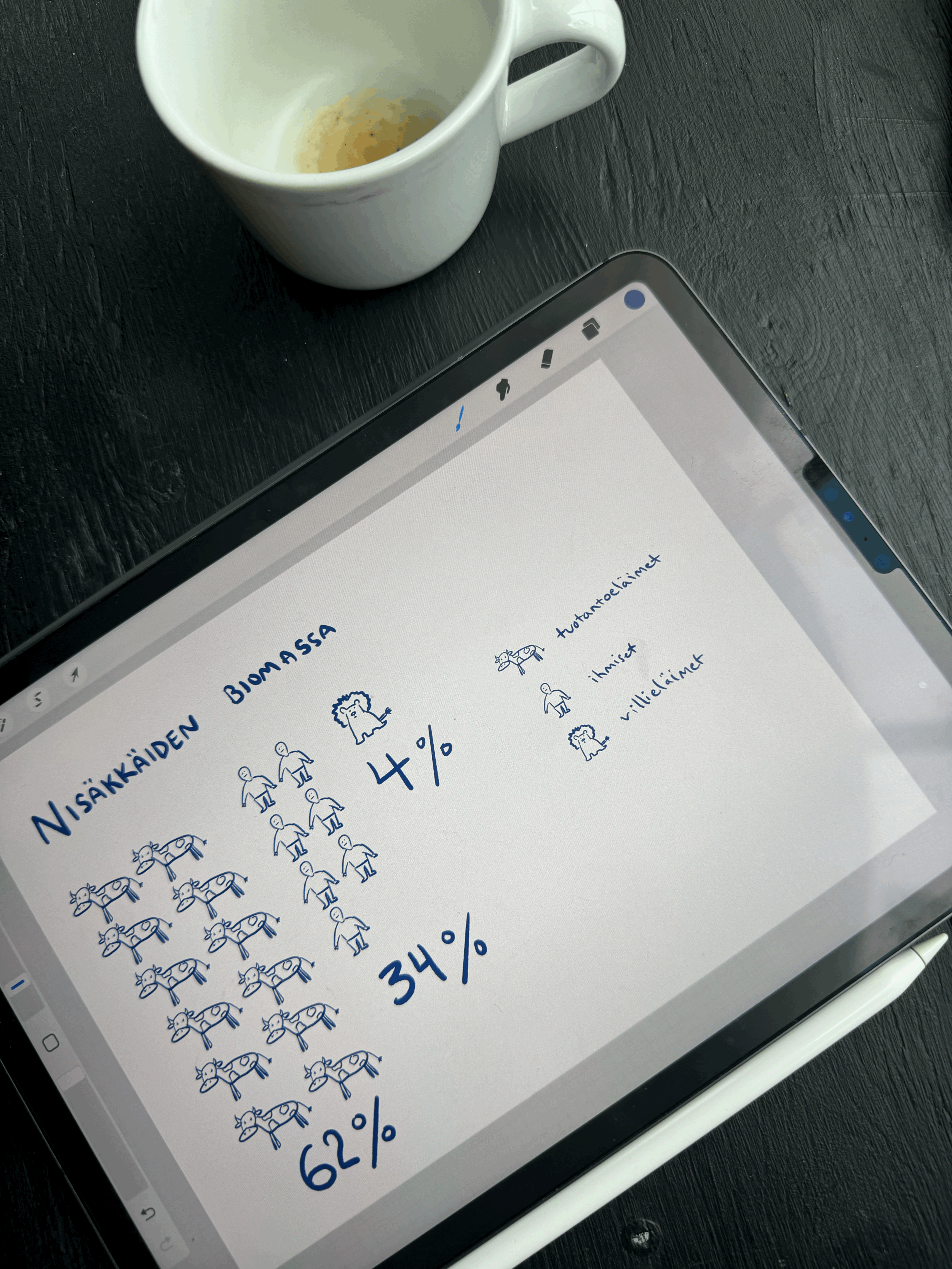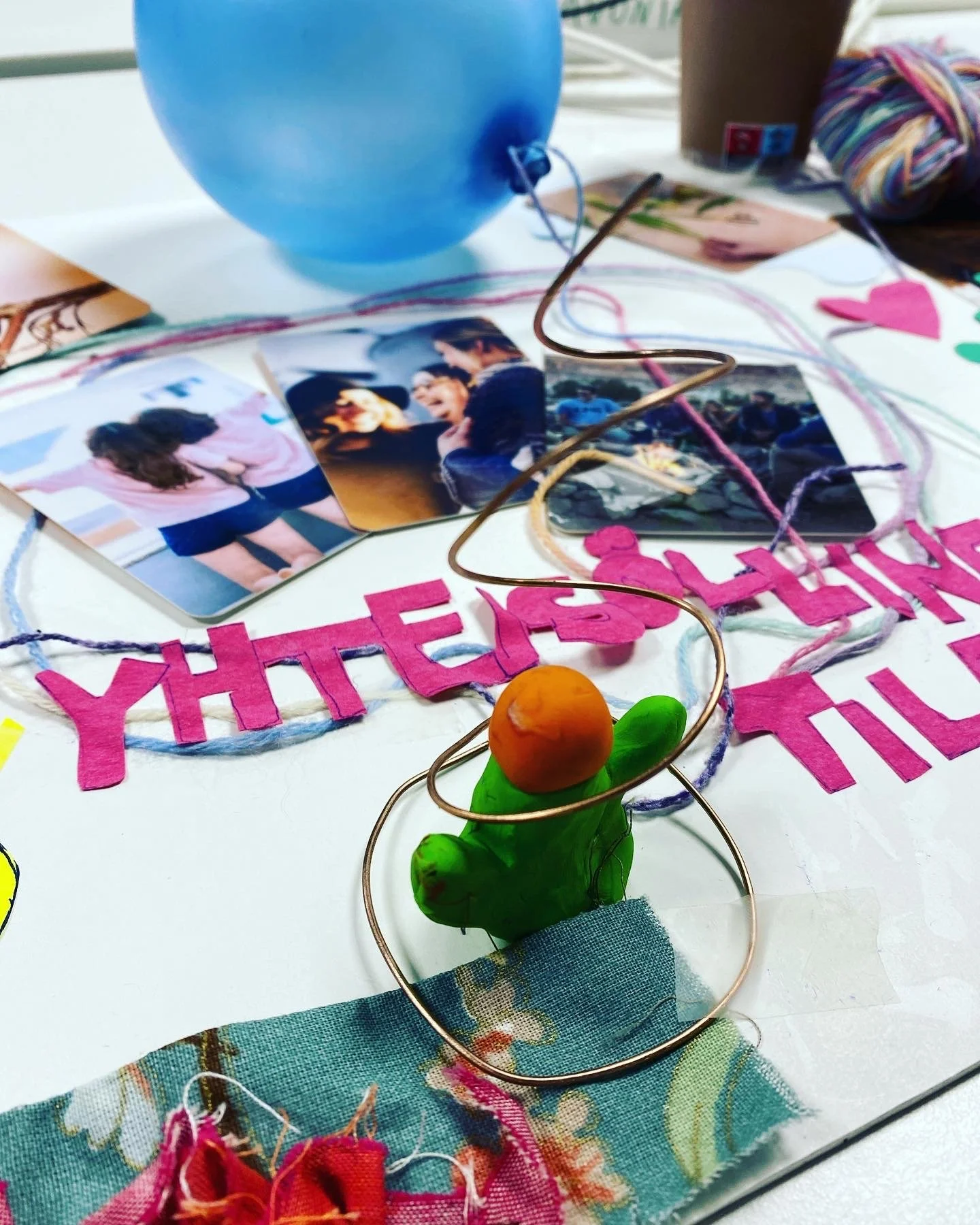
Me as a designer:
Principles, skills and tools
As a designer I’m still fresh, but a long career in the interpreting field has molded my principles, values and ways of doing. Years of experience in all aspects of the human life brings that something extra to design work.
Principles
DEI
Human rights, respect and curiosity of others lie in the heart of my doing. Embracing diversity, always striving for equality and making the design process as inclusive as possible are my guiding values.
Universal Design
Having (digital) services that are actually usable for all is a key thing in today’s world and it is also enforced legislatively. Having accessible services benefits all and when design is done right from the get-go we can avoid extra costs later fixing issues. This applies to both the digital and physical world.
Participatory methods
It goes without saying that design involves co-creation. For me, facilitating workshops is one of the most enjoyable moments of the design process. When tackling wicked problems, improving lives or looking for solutions to overcome tough situations having stakeholders truly involved and taking ownership of the issues is key.
Core skills
-
Design thinking is the basis on which I build my service design process. I apply it to all problem solving I face to ensure quality outcomes.
-
I am good with people, simple as that. I’ve been honing my workshop facilitation skills and I have a wide range of methods, tools and techniques to apply. I keep a look out for new methods all the time.
-
I am a Master of Humanities and have an academic mindset. I’ve also been immersed in the academic world through my interpreting profession.
I believe a solid research is the foundation to a successful project. Ethnographic methods and qualitative research is my strength. I’m keen to learn more quantitative methods as well.
-
I have a busy, creative mind, built for problem solving. Imagining possibilities, visioning futures and cooking up new, fresh and out of the box ideas is my thing.
-
I’m an illustrator so naturally working with images and graphics is close to my heart. I’m not afraid to do messy scribbles but can also spend hours honing a tidy final output.
Lately I’ve been rehearsing visual note taking an live illustration.
Tools & Methods
-
Service Design tools
A wide range of tools suited for all sorts of projects such as: Customer journey mapping, Service blueprints, Business model canvas, Value proposition canvas etc. Research tools: safaris, probes, questionnaires, interviews, observation etc. Prototyping and testing.

-
Artistic methods
Art, writing and drama as methods to research, innovate, conceptualize and discuss.
-
Miro and project management
Using Miro as a project management tool, ideation board, remote workshopping and more. I’m used to other digital whiteboard tools as well (Figjam, Zoom whiteboard etc). When managing projects I often utilize kanban and am familiar with the scrum structure.

-
Digital tools: visualization and prototyping
Adobe illustrator, Procreate, Canva, Adobe express. Intermediate at Figma (learning more currently). AI for text editing, ideation and speeding work flow (learning more currently).



